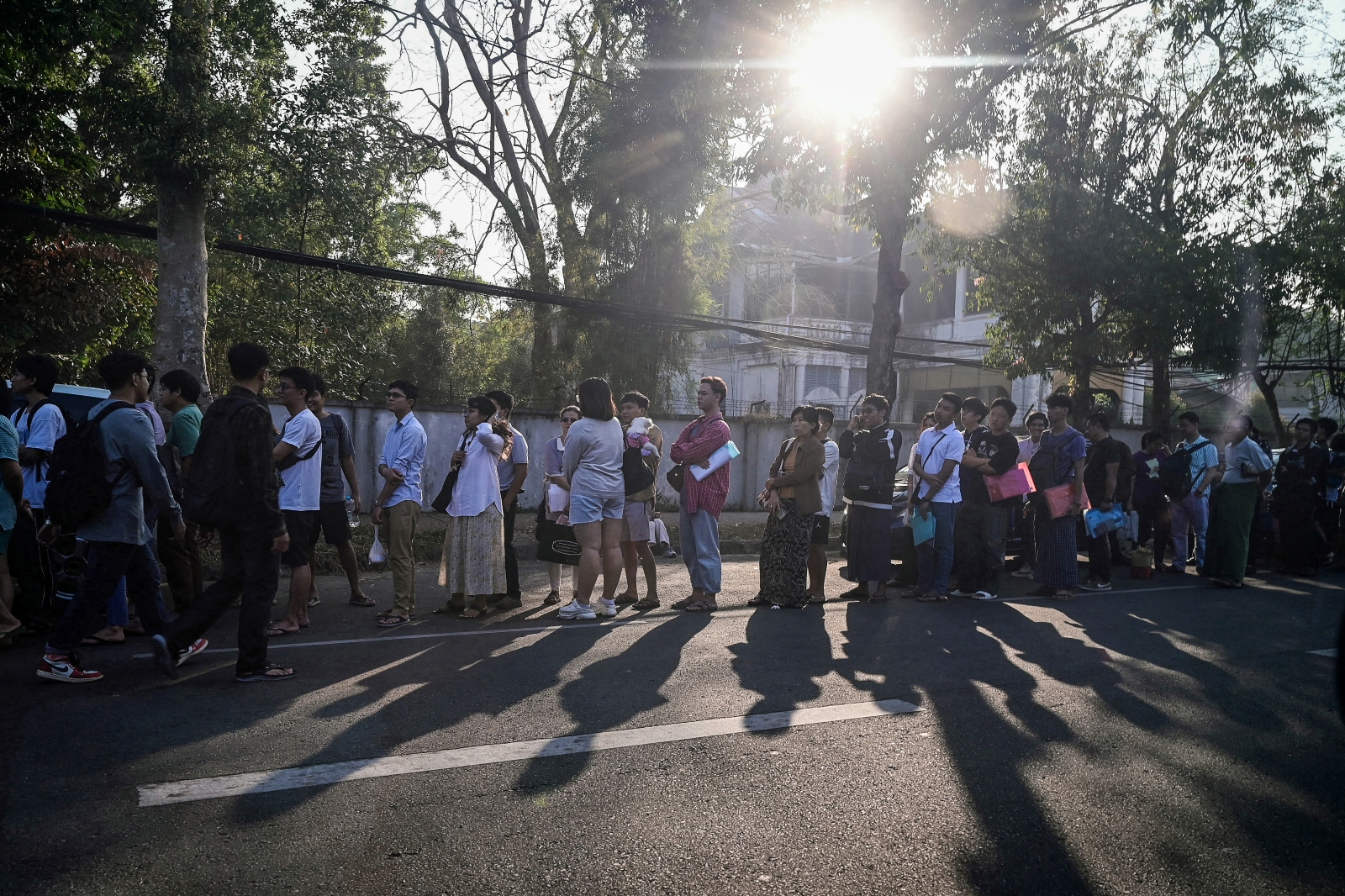The USDP and the Tatmadaw can afford an election that is free and fair.
Disillusion and grim despair gripped the political opposition on November 8, 2010. Optimism had soared the previous day as the people voted in the first general election in 50 years: early counting had the National Democratic Force and the Democratic Party ahead in all the constituencies in which they fielded candidates. Then the military government reached into a big bag of tricks and pulled out the artifice of advance votes. They helped the Union Solidarity and Development Party to take 77 percent of the vote.
The Asian Network for Free Elections later said advance votes and an irregularities in the counting process had left the election lacking in legitimacy.
Last week the Union Election Commission announced that the general election will be held on November 8. Will this year’s vote be any different to 2010?
In many respects 2015 is not 2010. International organisations are helping to build capacity in the UEC, although confusion reigns over voter lists. Independent election monitors will be allowed to observe election proceedings. Last but not least, expanding mobile phone penetration has led to a big increase in the number of ‘witnesses’ with access to the internet and social media. There is still a long way to go, but voters are better informed. The coordinated fraud that tainted the result in 2010 is unlikely to be repeated.
There will be errors and amateurism. Another challenge to a clean vote in some remote rural areas will be the ‘control’ mindset that persists among officials. But ultimately the USDP does not need to rig the elections; it only has to ensure that its share of the electoral pie is big enough to participate in a coalition government. Add the Tatmadaw’s guaranteed share of 25 percent of hluttaw seats to the equation and the ruling elite will still hold the strings, especially as appointments to four key ministries are controlled by the military.
Support more independent journalism like this. Sign up to be a Frontier member.
If the parliament and the cabinet are too democratic for the Tatmadaw’s liking, it can shift executive power to the Security and Defence Council.
In short: the USDP and the Tatmadaw can afford an election that is free and fair.
The ruling party also has the advantage of incumbency and ‘soft’ campaigning to woo voters. On July 7, in response to escalating popular sentiment, it axed Dagon City and four other projects accused of threatening the structural integrity of the Shwedagon Pagoda, the nation’s most revered Buddhist site. The boat people crisis may have generated negative international publicity for Myanmar but the USDP has earned kudos from the electorate over the exodus from Rakhine State of the disenfranchised and reviled Rohingya.
Expect to see more of this ‘campaigning’ in the coming months.
If the USDP ends up with a sizeable share of seats on November 8, it is probable that the only politically stable option open to the NLD will be to join it in a coalition. USDP chairman Thura U Shwe Mann is already jockeying for position. He is portraying himself, shrewdly, as the acceptable progressive face of the USDP. A strategic play that may end up in him being deemed acceptable to work with by the NLD cadres.
If a coalition scenario materialises, political reality will require the NLD to accept the limitations involved. Five years of shared responsibility will result in its aura growing dim. With memories of military rule fading and the NLD and Daw Aung San Suu Kyi back on earth, the Tatmadaw might feel comfortable about easing its grip a little bit more.
Five years on the political discourse will have shifted away from democracy and the role of the Lady to issues essential to the nation’s future: a shared concept of what it means to be Myanmar, the creation of a peaceful federal Union and the transformation of armed ethnic groups into bona fide non-violent political entities.






